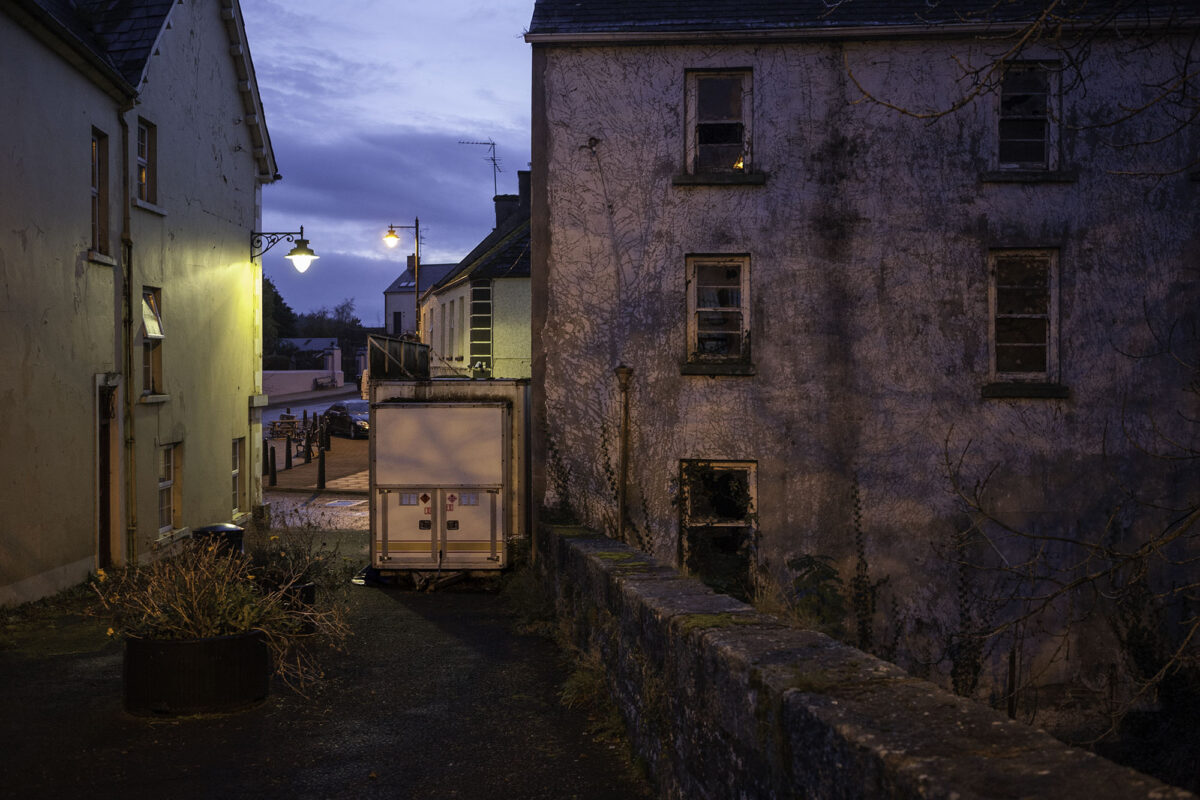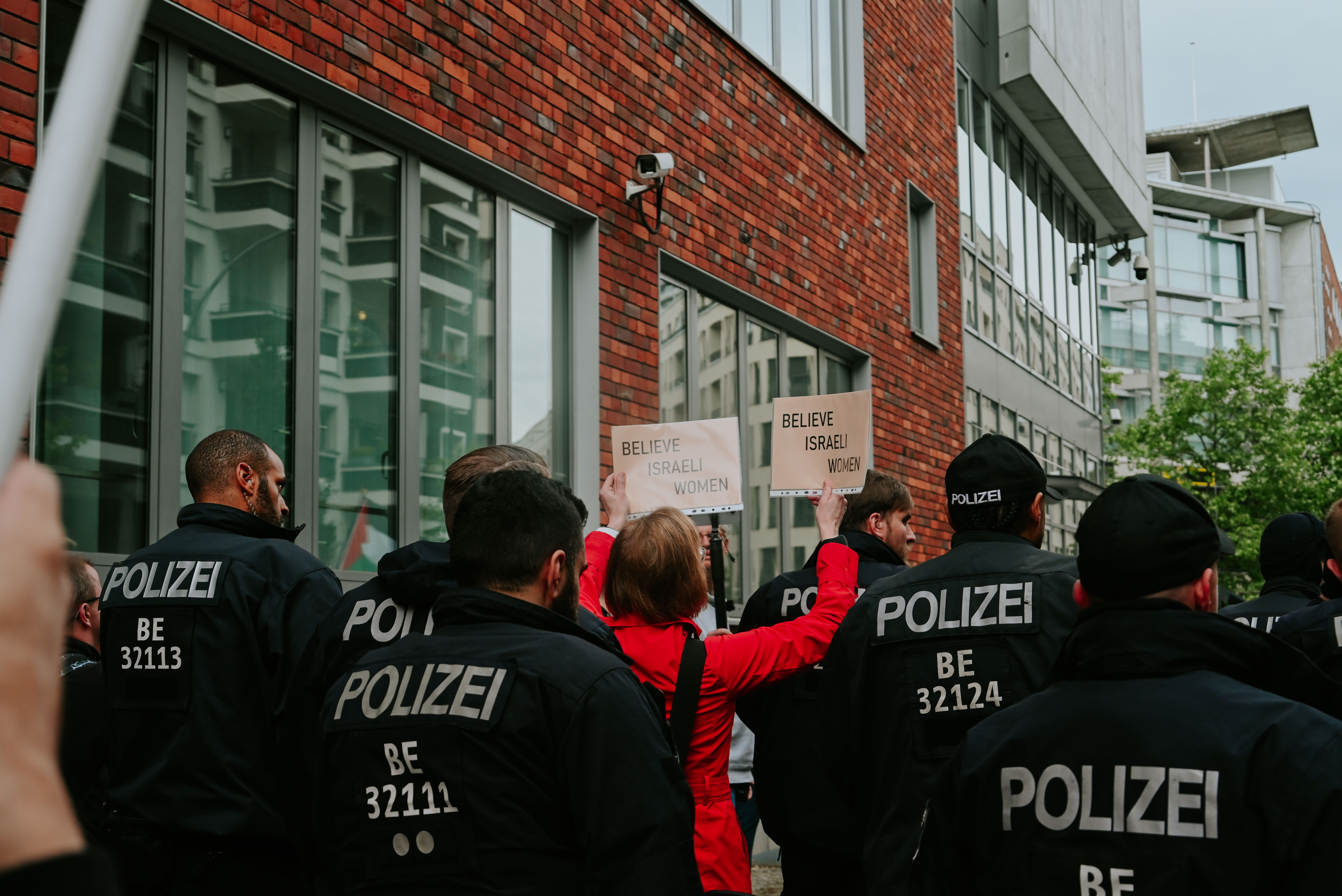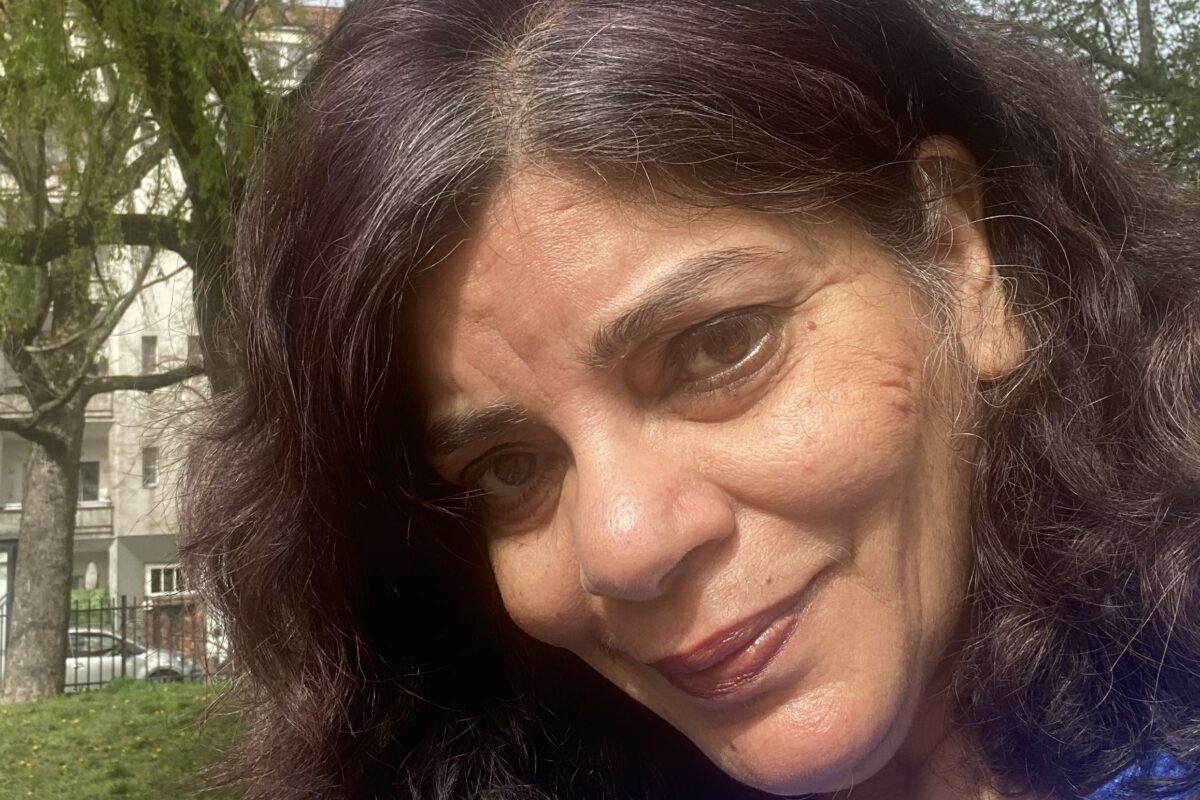The Left Berlin sat down with Dr. Fazila Bhimji to discuss her upcoming workshop on Namibia in film. Below is the transcript of our conversation.
Hi Fazila. Thanks for talking to us. Could you first start by introducing yourself?
Thanks for being here. My name is Fazila Bhimji. I do some teaching at Evangelische Hochschule Berlin (Protestant University of Applied Sciences, Berlin). I lived in England for a long time, and I taught film and media studies at a university in England. And then two years ago, I moved to Berlin.
Today we’re talking about a workshop you’re going to be giving soon on Namibia in Film. Why Namibia?
The Museum Neukölln currently has an exhibition depicting the genocide that Germany was engaged in in Western South Africa – at that time, there was no Namibia – against the Ovaherero and Nama. It was about land and colonial rule, and they decided to resist. And Germany, of course, didn’t like that, and between 24,000 and 100,000 Hereros and 10,000 Nama were killed in the genocide by Germans. There was also widespread famine.
This is very nicely explained in the museum. There are a lot of texts in German, but if you don’t speak German, you can hold your phone against the text and use Google Translate. It is a very, very well detailed exhibition.
The museum has a series of collaborations with the Volkshochschule. Different people from the community are doing different things. One person is giving a tour of the colonial history of Neukölln, and there are several other projects that are ongoing in collaboration with this exhibition.
How long is the exhibition going on?
It’s been going on since last year and will carry on until 21st July.
German memory culture talks a lot about the Holocaust, but there is very little talk about Namibia and the genocides in Africa. Why do you think this is?
I think there must be an agenda. If you make visible a European Holocaust, and not something that was done to Africans, perhaps there’s an element of racialization here. And then there’s a broader agenda about sustaining Israel. I don’t want to go into the reasons for this here, but it’s fairly obvious.
This has been obscured, and unfortunately even the exhibition has been obscured. There hasn’t been much publicity on the U-Bahn platforms. Usually when there’s an interesting exhibition there’s always some advertising in the U-Bahns in Rathaus Neukölln and Hermannstraße. But there’s nothing about this exhibition other than the website of the museum itself.
So it’s a wonderful exhibition with different collaborations including with the Volkshochschule Neukölln. I would encourage everyone to go because this genocide is considered the first genocide of the 20th century. It was very brutal, but for various political reasons and agendas, it’s been obscured.
You’re going to be talking about Namibia and film. What films are you going to be using? Are they films that people will know?
Yes, people will probably know some of them, like The Gods Must Be Crazy. This is a film which became popular, not only in the US and Europe, but also in the Global South. I remember at that time, I was a teenager in Pakistan. And that film just ran and ran and ran in the theatre for maybe a year or so. Everybody found the film funny, although it’s full of abstractions and stereotypes. I begin with this very popular film because I’m most familiar with it.
After that, I move on to some German soap operas, which also depict Namibia, and doctors and nurses as saviours in the region. Then I talk about independent films produced by Namibians themselves.
In one of the films I talk about, Horse Without a Name, which is set in Namibia, a monument comes to life. It is a hilarious take on former German colonisers who are worthless. He’s just walking around and looks really out of sync in present day Namibia. These Namibian films are very different to the stereotypes depicted in European and US films.
In the last few years, there have been a couple of German films about colonialism in Africa, to which I’ve had simultaneous and contradictory responses. On the one hand, there is finally an acknowledgement that there was such a thing as German colonialism. On the other, the films still have a paternalistic attitude.
I agree. There was Measures of Men, which was produced in Germany in 2023. It had this paternalistic representation, and didn’t really unpack anything in a serious way. It just glossed over the history. In a way, it was problematic. It wasn’t considered a very good or powerful film.
I think the most interesting film I saw recently was Dahomey. It is more related to France, and was about the return of a few museum pieces to Benin. This film was produced by the Senegalese-French director Mati Diop, who has also produced some other very good films. Dahomey was more complex and showed the transnational aspect and the current situation more.
The recent German films feel like for primary school children. They don’t go beyond some of the basic atrocities that Namibia experienced, and they don’t question imperialism in a serious manner.
But the films made in Namibia confront imperialism?
Some of them do. Horse Without a Name does it in an ironic way. A monument of this German person comes to life and his position is reversed. Namibia is now independent, and this guy is walking around. In one clip he’s told: “Get off the road, white guy, you don’t belong here”.
It also shows all the complexities of Namibia and doesn’t essentialise all Namibians. It shows the poor; it shows sex workers; it shows the middle class. Even in this very short film, it shows that Namibia is not a monolithic state. Even if it doesn’t contest imperialism, it shows present day Namibia in a more complex way.
I guess that unlike most Western films, it is more about people who have been colonized than the colonisers?
Exactly.
Is your workshop just going to be about German colonialism, or will it go wider?
We have just an hour and a half for this workshop, so I can only limit my part to German colonialism, but in the discussion section, the audience is totally free to talk about wider issues and link this first genocide of the 20th century with the current present day genocide happening in the Middle East.
Have you observed any changes over the years in the way that film has dealt either with Namibia specifically or with colonialism in general?
Mainstream films are still lagging behind on the question of imperialism. You now see some films in the Berlinale, but they have yet to reach mainstream theatres. But we have certainly seen a change in independent films. Technology has become much more accessible. So there are many more independent films.
Second-generation children of people who experienced colonialism have grown up in the Global North and now have some resources to make films which are ready to confront some of these difficult questions.
Mati Diop, who I mentioned before, made a beautiful film which dealt with the disappearance of men in the Mediterranean. I regard this as a form of ongoing decolonialism. Many African countries are still controlled by France, and there’s a lot of resistance. If you think about mobility as resistance and about people disappearing and dying in the Mediterranean, this is a form of colonial oppression. The film used metaphors and a little bit of surrealism to bring up these complex issues.
There was also an Indian film made two decades ago, called Lagaan, which means tax in English. It was a bit of a Bollywood film, but it did touch on this idea of how the imperial powers in India would unfairly collect taxes. They had a game of cricket, and obviously, being a Bollywood film, the Indian team won. But it touched on these issues very nicely and made them accessible to the general public.
So in the diaspora, they’re making films about these issues, and then outside the diaspora within the Global South, people are making films about their colonial experience now and historically. Film is a very important medium which can reach a lot of people. Also, the visual experience is different than reading a text. So it’s great that there are more films about these issues.
I have noticed that, particularly in France, a number of second-generation directors are emerging who are making very interesting films about their experience of being a minority within France. Many of these are women like Alice Diop [no relation to Mati]. We are also seeing film’s like Dev Patel’s Monkey Man, which I didn’t think was a great film, but was at least an attempt to talk about India’s colonial history within a mainstream Hollywood action film. Is this something to be welcomed?
Well it is a start, and it’s better than nothing or completely erasing colonialism. Complexities can come later as the film industry develops around this topic. So it should be welcomed, even if it’s at a very basic level. Because people start talking about it. It starts a conversation.
And although there is still way too little diversity in film directions, particularly concerning who wins awards, we’re starting to see more women and minority filmmakers.
Definitely. Because technology is so accessible now, you don’t need as many resources. It’s less expensive to make a film these days. So in Berlin, every second person is a film maker.
In France, Algerians who are second generation are making films about their colonial past and their history. They are so racialized in France that I can imagine a lot of topics which would be of interest to second and even first generation people – and even to the French themselves.
Let’s go back to your workshop. Why should people come, and what will they learn?
I think representation is key, because it has to do with ideology. Film makers represent certain parts of the world, and there’s all these complexities involved. When you see something over and over again, things get normalized. And that is very dangerous.
So it’s important to see films – especially mainstream films – and deconstruct them, so that the idea of how people are doesn’t get normalised, and people begin to see complexities and think about these films in a more critical way. For me, it’s very important that people deconstruct mainstream films, It’s nice to show some Namibian films, just to compare how things should be versus how things are in the mainstream.
The film I mentioned at the beginning, The Gods Must Be Crazy, was so popular. And by virtue of it being so popular, ideas about how certain people live, or about colonialism and imperialism, get normalized. It’s very important to break down and deconstruct these notions.
So your workshop is not just for filmmakers or critics. It’s for anyone who goes to the cinema?
Yeah. I just break the films down and ask people why they found this clip funny, and to reflect on if it’s really funny. What kinds of stereotypes are involved? This film is from the 1970s, and we’re now in 2024. What has changed?
I think people have come a long way and they will immediately pick up on the stereotypes of the time. It’s important to look at another period in another context and see what was popular.
If someone wants to know more about your workshop or wants to know more about the other work you’ve been doing, where can they find out more?
They can e-mail me at bhimjifazila@gmail.com. I’m looking forward to hearing from them.
Workshop: Namibia in Films with Dr. Fazila Bhimji: Tuesday, 18th June. Museum Neukölln.





